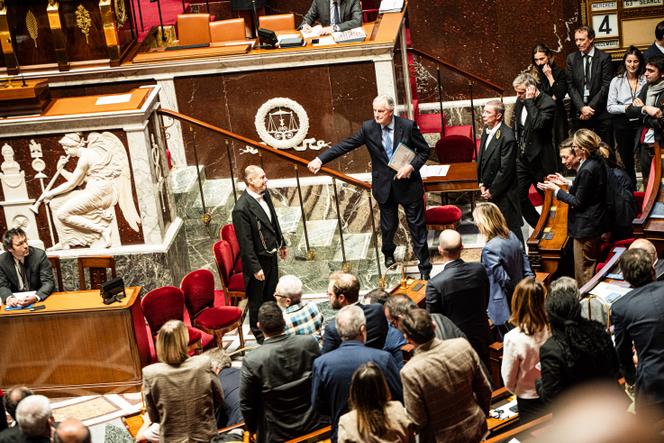


It was 8:26 pm on Wednesday, December 4, when the president of France's Assemblée Nationale, Yaël Braun-Pivet, spoke from the chair and confirmed the inevitable: Michel Barnier's government had been overthrown by the lower house of Parliament. "In accordance with Article 50 of the Constitution, the prime minister must submit the government's resignation to the president of the Republic," she said. Barnier was sitting directly opposite her, surrounded by some of his ministers. With reddened eyes, the 73-year-old rose to acknowledge the members of his centrist right-wing coalition, who gave him a standing ovation, before walking out of the Assemblée. It was now 8:27 pm and France no longer had a government.
Moments earlier, Barnier had spent almost half an hour delivering the eulogy of his tenure. "I feel honored to have been there for three months and still to be the prime minister of all the French people. And as this mission may soon come to an end, I want to tell you that it will remain an honor for me to have served France and the French with dignity," he concluded.
The motion of no confidence introduced by the Nouveau Front Populaire left-wing alliance was supported by 331 MPs out of 575, well past the 288 threshold required. It was a reaction to the government's use of Article 49.3 of the Constitution, two days earlier, to pass the social security budget bill for 2025 without a vote. The votes from the left-wing parties – radical La France Insoumise (LFI), the Socialists, Greens and Communists – were added to those of the far-right Rassemblement National (RN) and their allies. Only two votes were missing on the left: those of pro-independence New Calodenian MP Emmanuel Tjibaou and Socialist Sophie Pantel.
The vote on this motion of no confidence instantly became a historic moment for France. It was only the second time a government had been overthrown. The only precedent dates back to October 5, 1962, with the fall of Georges Pompidou – who did not leave office, as he went on to win snap elections.
Appointed on September 5, at the end of two months of post-election dithering, Barnier is now the prime minister with the shortest term in the history of the Fifth Republic, with only 90 days spent in the job. The collateral victim of the motion of no confidence is the social security budget bill and its version resulting from the joint committee of both chambers of Parliament, rejected on Wednesday as a consequence of the vote.
You have 64.95% of this article left to read. The rest is for subscribers only.
